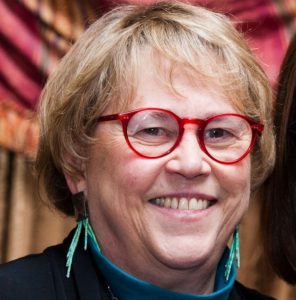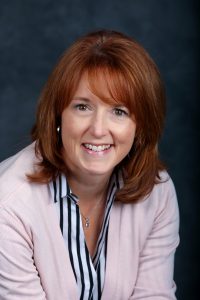This event is for eXtension Members Only
Building on the Foundation’s Trauma-Informed Philanthropy series, we are pleased to present a 10-month learning series, Investing in Community Resilience. This series, presented in partnership with the Scattergood Foundation, will provide vital information to funders and cooperative extension professionals for developing trauma-informed, healing-centered approaches in their work.
Please join us for the sixth and final webinar in the series, Advocating for Trauma-Informed Policy and Systems Change, will be on Tuesday, October 20th from 3-4pm EST.
To register, click here.
Advocating for Trauma-Informed Policy and Systems Change
October 20th, 2020
3-4pm EST
Presented by:
Sandra L. Bloom, MD

Dr. Sandra L. Bloom is a Board-Certified psychiatrist, graduate of Temple University School of Medicine and currently Associate Professor, Health Management and Policy at the Dornsife School of Public Health, Drexel University. For the past thirty years, Dr. Bloom has done pioneering work in the field of traumatic stress studies and is a past President of the International Society for Traumatic Stress Studies. Dr. Bloom originated and has written extensively about the Sanctuary Model and in 2020 is introducing a new, online organizational approach called Creating Presence. Dr. Bloom has served as Co-chair for the Philadelphia ACEs Task Force since its inception in 2012. She is also currently co-chairing a national organization, CTIPP – The Campaign for Trauma-Informed Policy and Practice – whose goal is to advocate for public policies and programs at the federal, state, local and tribal levels that incorporate up-to-date scientific findings regarding the relationship between trauma across the lifespan and many social and health problems. CTIPP was awarded the Distinguished Service Award for 2019 from the American Psychiatric Association.
Jesse Kohler, MEd
 Jesse currently serves as a co-chair for the National Trauma Campaign for the Campaign for Trauma-Informed Policy and Practice. He also serves as an Advocacy Associate for Council for a Strong America. After graduating from Oberlin College in 2016, he got a fellowship with a nonprofit organization, 12+, where he worked at an inner-city public high school to promote a college going culture, as well as coaching baseball and basketball. Toward the end of his fellowship he was accepted into a Master’s in Educational Leadership executive cohort. During his Master’s, Jesse got an internship in the Pennsylvania Office of Attorney General Josh Shapiro in the Office of Public Engagement, predominantly working to develop the Pennsylvania Trauma-Informed Network. Jesse wrote his thesis on the promises of a trauma-informed education system.
Jesse currently serves as a co-chair for the National Trauma Campaign for the Campaign for Trauma-Informed Policy and Practice. He also serves as an Advocacy Associate for Council for a Strong America. After graduating from Oberlin College in 2016, he got a fellowship with a nonprofit organization, 12+, where he worked at an inner-city public high school to promote a college going culture, as well as coaching baseball and basketball. Toward the end of his fellowship he was accepted into a Master’s in Educational Leadership executive cohort. During his Master’s, Jesse got an internship in the Pennsylvania Office of Attorney General Josh Shapiro in the Office of Public Engagement, predominantly working to develop the Pennsylvania Trauma-Informed Network. Jesse wrote his thesis on the promises of a trauma-informed education system.
Following graduation, Jesse served as the Director of Development at North Light Community Center in Philadelphia. Jesse established new programs including the Lowering Overdose and Violence Epidemics (LOVE) initiative, which embeds trauma-informed care and resilience focused programs into all that North Light does. During his time at North Light, Jesse received certification as a trauma-competent professional from Lakeside Global Institute.
Marlo Nash

Marlo Nash is a policy advocacy and systems strategist whose career includes executive leadership roles in national and state non-profit child advocacy networks. In her role as National Director of Partnerships and Policy, she leads Saint Francis Ministries Washington, DC office and works nationally to facilitate connections among federal and state policymakers and public agencies, private human services organizations, issue coalitions, and a national network of partners and clients for policy development, advocacy campaigns, systems change leadership, constituent mobilization, and more. She brings a background of working on policies and systems changes designed to build and restore well-being for children and families through early childhood and child welfare systems.
She has had many national roles including having served as the senior vice president of public policy and mobilization at the Alliance for Strong Families and Communities, vice president of membership for the organization known today as the Partnership for America’s Children, and as executive director of the National Foster Youth Institute. She was originally recruited to work in Washington, DC from her home state of Oklahoma by United Way of America, where she served as the vice president of community impact and oversaw the implementation of two national community impact initiatives: Success By 6 and 2-1-1. While at United Way, she also helped direct the community mobilization efforts of the Ad Council’s Born Learning campaign.
Before making national contributions, Nash spent 10 years with the Oklahoma Institute for Child Advocacy, where she worked with policymakers and stakeholders, including a statewide network of child advocacy leaders, and a network of public and private leaders that she helped establish to improve early childhood systems.

Comments (1)